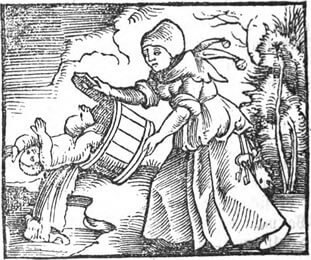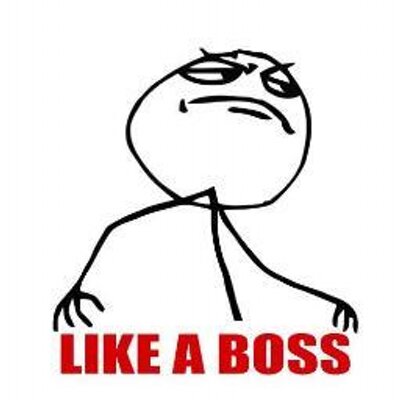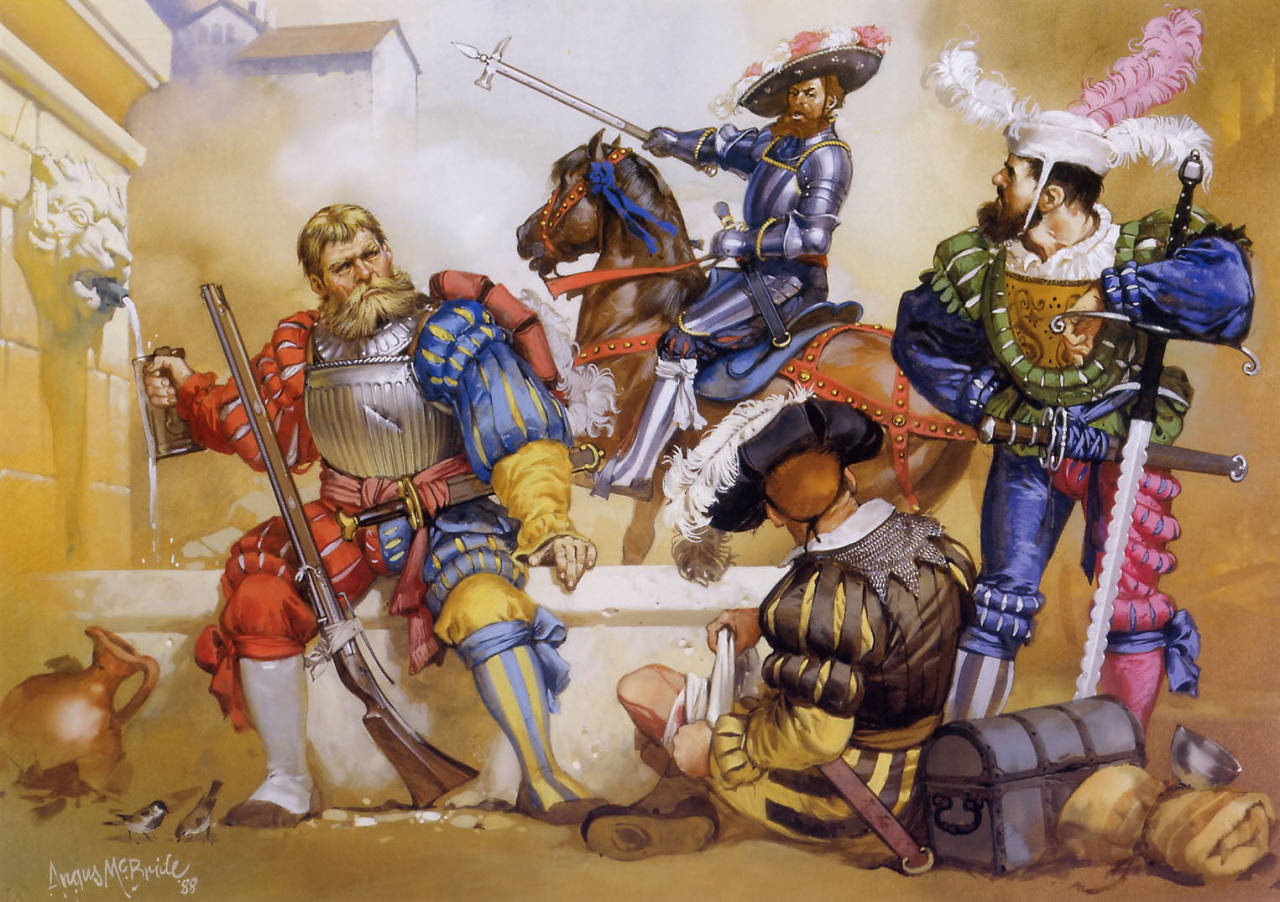From Henry VII to Elizabeth I, there are alllll of those Tudors. Wives, husbands, lovers, courtiers, headsmen with axes and swords . . . here's the place to get straight-up, low-down, historically accurate, twenty-first century interpretation on the wide and multi-generational range of players at the Tudor Court. Enjoy!
Wednesday, June 1, 2016
Memorandum From Cromwell to Anne Boleyn's Coronation Planning Committee
Memorandum
To: Coronation Planning Committee
Street Festivities Contract Workers
From: Tom Cromwell
CC: Tom Cranmer
Date: 3 June, 1533
Re: Coronation Event Wrap-up
What the actual fuck, you guys.
Of all the events to tank, you idiots chose THIS ONE?
Are you even kidding me?
Here is the (very) abbreviated list of the insulting slams to our queen -
1. NONE of the French invitees attended the coronation procession.
Likewise, the tournament.
NONE.
We had to fill in their place in the procession with a bunch of god-damned merchants.
2. When the queen processed through the Steelyard, did not ANY of you grasp that shoving the building of a tableau down the throats of German traders was gonna backfire?
Their tableau was decent; some bullshit about Parnassus. Whatever.
Until the queen looked across the street and saw a Goodyear blimp-sized Imperial Eagle wearing the emblems of Castille and Aragon on a fucking "Miss America"-style sash across its feathered breast.
Did you guys think she missed that?
3. The little kid in the merchants group - their pageant was at Leadenhall, if I'm not mistaken - the one of the four who stepped forward to speak to the queen?
The kid who wished her the same fertility of the family of Saint Anne?
Saint Anne only ever birthed one girl.
Get it?
Find whoever told the brat to say it, and I want the responsible party disappeared, as that was NOT anyone's idea of 'best wishes.'
4. I want a list of the names of every single citizen you saw saying, "H & A, HA! HA! HA!" on my desk by tomorrow morning.
If you didn't recognise any individuals, give me the part of town and the street names.
I want specifics.
There will be more fallout from this massive fuck-up.
Starting right now, you're all on notice.
Sunday, May 29, 2016
Saturday, May 28, 2016
Eustace Chapuys - On the Receiving End of Shade for Over 400 Years - Deserved or Not?
Eustace Chapuis/Chapuys was the Spanish ambassador at the court of Henry VIII.
He is a terrific primary source for details about the people, the parties, the personal and professional in-fighting among courtiers, the pageantry and the pomp at the gilded world of the Tudor court.
At the time it all went down -
He.
Was.
THERE.
But actually.
And yet . . .
His reports and entries into the records (and the English love their records!) concerning Anne Boleyn) are often (like, all the time) slated, orthrown out entirely by touchy-feely Tudorphiles, as prejudicial, slanted, and possibly fabricated entirely for the benefit of the one signing his paycheck - Spain.
 As an imperial ambassador reporting directly to the
As an imperial ambassador reporting directly to the
holy Roman emporer, Charles V, Chapuis had opportunity to view Henry VIII's court activities; from day-to-day interactions to the big heavy 'do's where courtiers worked the room as zealously as a life insurance salesman at his high school reunion.
Chapuis sent dispatches back to Charles V.
They were filled with tart observations on the character of Henry VIII.
They were filled with tart observations on the character of members of the Boleyn clan.
They were filled with tart observations on the character of members of every clan.
The man was genius at ingratiating himself with anyone and everyone at court to whom he was allowed access; from scullion to lady's maid, no one was immune to being on the receiving end of his knowing eye, his probing questions to test allegiances amongst courtiers for possible fractures
Then he scarpered back to his rooms to write it all down.
Eventually, his notes made their way into missives; those made their way to the hands and the razor-sharp mind of Charles V - son of Catherine of Aragon's sister.
Chapuis' notes were written expressly for one of the most powerful men on the planet.
Chapuis had to get it right.
Back in Tudor times (when folks had fewer new iPhone updates with which to contend)
their brains absorbed experiences with more depth and richness than today's puny-ass brains can imagine.

Chapuis either had one heck of a photographic memory, or a trusty 4"X8'' notebook and a pencil with him at all times.
Chapuis' reports to his boss(es) can be found on British History Online. ( british-history.ac.uk )
His reports are scoldingly honest.
Not scathingly; that wouldn't have been good manners.
He called Anne Boleyn the Concubine, the Lady, the Whore, 'this Anne,' but, face it, none of those names are entirely false.
She was a kept woman.
She was a lady; Lady Anne Rochford.
She was a whore in the angry use of the word; as in, 'you big WHORE!"
And she was 'this Anne.'
Well, my dear Anne Boleyn defenders, by all means stand by your beyotch, but as my dear old inner voice often says, "Just because you don't like hearing something doesn't make it not true."
Anne Boleyn may have been a paragon of Catholic virtue.
She may have been wrongly maligned and set up by a jealous court and hardball-playing advisors to the king.
There's every chance charges against her were entirely (mostly) fabricated and consisted of a veneer of truth pasted over a mountain of lies.
There's also a chance that she was a spiteful, entitled, nasty, conceited, reactive, new-money piece of work with a great deal more style than substance.
There.
I've said it.
Chapuis wasn't the problem, just the messenger.
His job and his soul depended on telling the truth about what he saw in the secret corners and the wide open spaces of Henry VIII's court.
Imagine the ass-roasting the guy would have received from his boss if his boss made decisions based on bad information from his ambassador; it would have made your little writing-up kerfluffle on those overly-long lunch breaks look like lint on the cuff of a pair of white trousers.
Yet in a classic case of throwing out the baby with the bathwater,

Anne Boleyn enthusiasts have developed the unlovely fallback position of disregarding Chapuis' truths about her actions and/or intentions based solely on the fact that he was the Spanish ambassador.
Spanish ambassador - as if the word 'Spanish' were a get-out-of-facing-the-truth-free card.
Anne Boleyn was a tragic figure.
She was not a popular queen; she did not inspire loyalty in the hearts of most of her subjects - loyalty was reserved for Catherine of Aragon (you know, the *actual* queen,) nor was she able to manage to keep more than a scant handful of people loyal to her.
She did not deserve the extreme haircut she received; or, maybe, just maybe, she did.
For reporting the truth as he saw it, Chapuis does not deserve the extreme scepticism he receives.
He is a terrific primary source for details about the people, the parties, the personal and professional in-fighting among courtiers, the pageantry and the pomp at the gilded world of the Tudor court.
At the time it all went down -
He.
Was.
THERE.
 |
But actually.
And yet . . .
His reports and entries into the records (and the English love their records!) concerning Anne Boleyn) are often (like, all the time) slated, or
 As an imperial ambassador reporting directly to the
As an imperial ambassador reporting directly to the holy Roman emporer, Charles V, Chapuis had opportunity to view Henry VIII's court activities; from day-to-day interactions to the big heavy 'do's where courtiers worked the room as zealously as a life insurance salesman at his high school reunion.
 |
| "Oh, look. There's Chapuis. Again. Christ, he's got his business cards out. Quick, laugh like I just said something funny." |
They were filled with tart observations on the character of Henry VIII.
They were filled with tart observations on the character of members of the Boleyn clan.
They were filled with tart observations on the character of members of every clan.
The man was genius at ingratiating himself with anyone and everyone at court to whom he was allowed access; from scullion to lady's maid, no one was immune to being on the receiving end of his knowing eye, his probing questions to test allegiances amongst courtiers for possible fractures
Then he scarpered back to his rooms to write it all down.
Eventually, his notes made their way into missives; those made their way to the hands and the razor-sharp mind of Charles V - son of Catherine of Aragon's sister.
Chapuis' notes were written expressly for one of the most powerful men on the planet.
Chapuis had to get it right.
Back in Tudor times (when folks had fewer new iPhone updates with which to contend)
 |
| "Wait, whut?" |

Chapuis either had one heck of a photographic memory, or a trusty 4"X8'' notebook and a pencil with him at all times.
 |
| "And may I quote you, Lady Anne?" |
His reports are scoldingly honest.
Not scathingly; that wouldn't have been good manners.
He called Anne Boleyn the Concubine, the Lady, the Whore, 'this Anne,' but, face it, none of those names are entirely false.
She was a kept woman.
She was a lady; Lady Anne Rochford.
She was a whore in the angry use of the word; as in, 'you big WHORE!"
And she was 'this Anne.'
 |
| "This Anne I know . . . " |
Anne Boleyn may have been a paragon of Catholic virtue.
She may have been wrongly maligned and set up by a jealous court and hardball-playing advisors to the king.
There's every chance charges against her were entirely (mostly) fabricated and consisted of a veneer of truth pasted over a mountain of lies.
There's also a chance that she was a spiteful, entitled, nasty, conceited, reactive, new-money piece of work with a great deal more style than substance.
There.
I've said it.
Chapuis wasn't the problem, just the messenger.
 |
Imagine the ass-roasting the guy would have received from his boss if his boss made decisions based on bad information from his ambassador; it would have made your little writing-up kerfluffle on those overly-long lunch breaks look like lint on the cuff of a pair of white trousers.
Yet in a classic case of throwing out the baby with the bathwater,

Anne Boleyn enthusiasts have developed the unlovely fallback position of disregarding Chapuis' truths about her actions and/or intentions based solely on the fact that he was the Spanish ambassador.
Spanish ambassador - as if the word 'Spanish' were a get-out-of-facing-the-truth-free card.
Anne Boleyn was a tragic figure.
 |
| "See, Anne, we're just alike, you and me." |
She did not deserve the extreme haircut she received; or, maybe, just maybe, she did.
For reporting the truth as he saw it, Chapuis does not deserve the extreme scepticism he receives.
Friday, April 8, 2016
Phantom Itching
Ever had your skin crawl after seeing a potato bug?

Ever twitched uncontrollably after seeing a spider?

How about scratched your head after contact with someone who looked as though head lice were a distinct possibility?

Having spent a great deal of time lately reading about persons from history whose heads rolled on a scaffold, and in particular Anne Boleyn, the idea of phantom itching pre-execution (right at the point where neck and spine meet) is one I'm currently exploring.
When the trial was over and the axe of the Yeoman Warder who'd guarded the prisoner was pointed toward that prisoner,

it meant:

JK!!!!! lol!!!
It actually meant:

The jury of one's peers had spoken.
 |
| Unanimous? Really? U-effing-nanimous? |
Generally the prisoner
 |
 |
| "Remember oh most gracious Virgin Mary . . oh fuuuuuuuuccccckkkkkkkkkk." |
Then wrote their will.
Also on their to-do list
 |

The bigger the tip, the better his aim.
 |
| "They call me Wall-eyed Joe. What?" |
And once those pesky details were dealt with, there was time to sit and think and feel the itch right there . . . right at the base of the back of the neck . . . "Is that where the axe will hit me?" and, "How long will I feel it?" and most important of all, "Will he get it in one chop?"
As anyone in Tudor-era England would do, condemned prisoners got very, very right with Jesus before their Big Day.
Still - on those sleepless nights in the Tower of London, with only the sound of the wind and the occasional creak of oars along the Thames - the phantom itch must've been . . . just interminably creepy, and followed by a case of the shudders second to none.
 |
 |
| "Yeah, that's gonna leave a mark on my $5000.00 suit, for sure." |
Yes.
It's just as disgusting as it sounds.
Hung till near dead.
Drawn (have Big Jim and the Twins cut off and burned in front of you; same with your intestines.)
Quartered - divide by four and send each part to a separate corner of the kingdom (like who wants to look at THAT?)
 |
| "Come on. . . I'll make popcorn! They're only displaying it 'til the week-end!" |
The executioner declared, "Behold the heart of a traitor!"
"THOU LIEST!" bellowed the supposed-to-be-dead-by-now Mr. Digby in a case of Extreme Last Word.
Now THAT is an unforgettable exit . . .

*"The Tower" by Nigel Jones; pg. 285 :-) Thanks, boss.
Wednesday, April 6, 2016
Moving House
IT'S MOVING DAY!!!
Did Tudor-era English move house?
And did they whine about it?
Or did they just go loudly insane, like me?
Normal posts and activity will return here in a day or two.
As you were. . .
Did Tudor-era English move house?
And did they whine about it?
Or did they just go loudly insane, like me?
 |
| HI! Yes, another venti coffee from Starbucks, please!!! |
As you were. . .
Saturday, April 2, 2016
Early April - In Which We All Begin To Feel Anxious on Behalf of Anne Boleyn
April is the month before everything went to shit for Anne Boleyn in 1536.
She'd miscarried a son in January;
Henry VIII was less than a loving husband in response to the news.
He was scathing in his dismissal of her shortly afterwards.
Worse, his eye was wandering in a way Anne Boleyn surely recognized - that same wandering eye brought her to him.
Rather than wearing her humble face
and winning back the king's affection, she turned spiteful and played games with the men of the court's very innermost circle.
Her world was imploding at its core.
It was only a matter of time before it collapsed under her black velvet slippers.
And while Anne Boleyn's guard should have been up, it seems she couldn't tell if she were simply jumping at shadows or if it was really as bad as she feared.
Turns out it was worse.
The factions at court whom she'd left politically bruised began circling.

They were joined by those whom she'd squelched over religion.
The Lady Mary, prodded out of the line of succession by Anne Boleyn's daughter, Princess Elizabeth, had her own chance to stir the pot - and she tacitly invited all courtiers who'd watched while Henry VIII disgraced her mother, a beloved queen, a gentle queen, a queen who'd ridden against freaking Scotland and brought back the head of the Scottish king to line up and take their best shots at Anne Boleyn.
And then there were all those spiteful frenemies who lined up to spew their 'dirt' on her, all the while maintaining a wide-eyed innocence as though their ladylike sensibilities were shocked by the queen's vulgar actions.
It was a month when the rumour mills worked overtime, when the king openly dandled a mistress/queen in waiting on his knee, when the queen made a fatal flirtatious quip to a courtier, telling him if something happened to the king, that same courtier would want to have her, when the king's man Cromwell vacuumed up every and any tidbit of gossip about the queen.
Such a pretty month, too; when the earth throws off winter's last frost and warmed under the sun, gives off the smell of newly-turned soil and delicate green shoots appear almost overnight with the promise of wildflowers and berries.
Anne Boleyn was still able to go through the motions at court in April, 1536 - but with an unsettled feeling that something was not quite right.
TS Eliot was onto something when he wrote, "April is the cruelest month."
 |
 |
| "She hath miscarried of her Saviour." |
 |
| "You'll get no more sons from ME." Yes, Anne, that means things are very bad indeed. |
He was scathing in his dismissal of her shortly afterwards.
Worse, his eye was wandering in a way Anne Boleyn surely recognized - that same wandering eye brought her to him.
 |
| "Henry, are you f*cking kidding me? Really? Jane f*cking Seymour?" |
 |
| Mea culpa, mea culpa |
and winning back the king's affection, she turned spiteful and played games with the men of the court's very innermost circle.
 |
| Fiddle-dee-dee! I swear, I don't know which of you courtiers is the handsomest! I was awake all night trying to decide. . . |
 |
And while Anne Boleyn's guard should have been up, it seems she couldn't tell if she were simply jumping at shadows or if it was really as bad as she feared.
 |
| No. It's much, much worse. |
The factions at court whom she'd left politically bruised began circling.

They were joined by those whom she'd squelched over religion.
 |
| I never forget a thing I've been told, nor an action I've seen. |
02.jpg) |
| That's Uncle Enemy to you, Anne. |
And then there were all those spiteful frenemies who lined up to spew their 'dirt' on her, all the while maintaining a wide-eyed innocence as though their ladylike sensibilities were shocked by the queen's vulgar actions.
 |
| "I can hardly bear to repeat what I've seen . . . no, wait, I'll tell you a bunch of shit about her, and I'll make stuff up, too." |
It was a month when the rumour mills worked overtime, when the king openly dandled a mistress/queen in waiting on his knee, when the queen made a fatal flirtatious quip to a courtier, telling him if something happened to the king, that same courtier would want to have her, when the king's man Cromwell vacuumed up every and any tidbit of gossip about the queen.
 |
Such a pretty month, too; when the earth throws off winter's last frost and warmed under the sun, gives off the smell of newly-turned soil and delicate green shoots appear almost overnight with the promise of wildflowers and berries.
Anne Boleyn was still able to go through the motions at court in April, 1536 - but with an unsettled feeling that something was not quite right.
TS Eliot was onto something when he wrote, "April is the cruelest month."
Friday, April 1, 2016
Charles V The Holy Roman Emperor Who Sacked Rome
Charles
V – Nephew of Catherine of Aragon, Incredibly Busy Emperor
In
the long-standing tradition of bureaucrats everywhere, Cardinal Wolsey once sat
on an inconvenient memo from his boss, Henry VIII.
For the longest time, hoping the matter behind the memo would just please go away, the Cardinal did nothing
about it.
 |
| "I have a bad feeling about this memo. . . " |
Unfortunately
for Wolsey, the memo was the one where Henry VIII asked him to look into a no-fault divorce so the
king could ditch Catherine of Aragon (with her fertility and her figure past its
‘sell-by’ date) for Anne Boleyn (younger, sassier, sexier.)
 |
| "Hmmm. . . . Anne or Catherine? Catherine or Anne?" |
Henry
VIII, with his trophy-wife-in-waiting who got exponentially more strident about
that ring NOT on her finger with every day that passed, asked Wolsey about
progress on asking Rome to allow his divorce.
“It’s
coming. It’s coming along,” answered Wolsey, for the second, third, eighteenth time.
Henry VIII and Wolsey had a come-to-Jesus meeting about the non-action on Henry
VIII’s divorce - which was not at all forthcoming.
 |
| "You see, Wolsey, logrolling only works when we BOTH do our job. Buh-bye now." |
By
then, it was too late.

Once
the cat was out of the bag and everybody knew Henry VIII was insanely stalking
in love with Anne Boleyn, there was no hope of Wolsey slipping a quiet little
‘sign here, please, Holy Father’ to slip an okay on the divorce through the onerous
process of a Roman Catholic divorce.
For
it was not just the Pope who was dismayed at Henry VIII’s cavalier attitude
towards jettisoning his current queen, but also the Holy Roman Emperor Charles
V (and, oh, SNAP! He was the nephew of Catherine of Aragon.)
His
position on Henry VIII’s divorce was ABSOLUTELY NOT.

Why,
one might ask, would the Holy Roman Emperor wield such power?
Have
a look at this:
The
areas colored in were under the rule of Charles V.
Son
of Catherine of Aragon’s sister, Juana, Charles V was a Royal Overachiever.
He
managed to keep so many plates spinning in the air concurrently

that from sheer exhaustion, he abdicated the throne at age 56 to spend the rest of his days in serious peace and quiet – in a monastery.
Henry
VIII and Anne Boleyn, determined to break new ground by showing the world the
meaning of the words ‘trophy wife,’ did a dance-around-Charles V, the-royal-heavyweight,
reel from 1528 through 1533.
Their
courtship, and Anne’s period as the affianced of Henry VIII, moved at a glacial
pace
 |
due, in part, to placate the sensibilities and (rightly placed) suspicions
of Catherine of Aragon and her nephew, Charles V, Holy Roman Emperor/King of
the Known World.
The
then-pope, Clement VII, had his own treacherous balancing act on his
ecclesiastic hands.
 |
| Hmmm. . . Charles or Henry? Henry or Charles? I do wish this would all go away. . . . |
On
the one hand, there was Charles V – Emperor of the Holy Roman Empire – and
nephew to his Auntie Catherine of Aragon, married to Henry VIII.
On
the other hand, there was Henry VIII, behaving very badly indeed towards both
his wife and the Roman Catholic Church.
While
Henry VIII made a decent case for an annulment of his marriage by citing an Old
Testament verse that, taken at face value, invalidated his union with his wife,
Charles V (nephew of that same wife) had the heavy hammer of an enormous empire
and enormous military resources.
Charles
V, dealing with the rise of Protestantism across the European continent, a war
with France, and skirmishes with the expansion of the Ottoman Empire, was a man
described as “not greedy for territory, but most greedy for peace and quiet.”
 |
| "Yes, please." |
 |
| "Where's my #2 pencil? I need to fill in that #1 circle." |
In
1527, his forces sacked Rome
and the pope felt the righteous fear of having an enemy army roiling around the outside walls of one’s palace.
 |
| Okay, White BunnyEar Feathers, you grab the gold; I'm going after His Holiness. |
and the pope felt the righteous fear of having an enemy army roiling around the outside walls of one’s palace.
Distracted,
Clement VII didn’t focus on granting Henry VIII’s annulment – too busy
scarpering hither and yon, evading enemy troops - and time ticked on.
Henry
VIII, not getting any less horny with time, was impatient with a capital ‘I.’
Anne
Boleyn developed a bad case of the Entitlements; she spoke ill of Catherine of
Aragon and generally behaved like a new-to-money, crass and mouthy sidekick to
the king.
Her
waspish comments should have been a warning to Henry VIII of what was yet to
come, once they’d married and she had that crown on her head.
 |
| "Where the f*ck is my crown, Henry?" |
Henry
VIII must not have been paying attention.
Perhaps
without a Charles V, and with a quick annulment, the marriage between Anne
Boleyn and Henry VIII wouldn’t have imploded.
Instead,
Catherine of Aragon, shuttled off to drafty, damp castles and no spring chicken
any longer, died of poor treatment and also some kind of cancer, on January 7, 1536.
 |
But then, the surprise ending to Anne Boleyn's amazing story began to unfold.
After
her death, there was no ‘villain’ for Henry VIII and Anne Boleyn to side up
against, and the
lack of a common enemy was a final nail in the coffin of their
marriage.
We all know how that story ended, so back to poor exhausted Charles V -
with
his Auntie no longer the earthly prisoner of her impulsive, self-satisfying, politically
lightweight husband, Charles V focused again on wars against France, who kept making the most annoying and repetitive land
grabs in Italy.
 |
| Oh, Christ - not the French in Italy, again. |
By
1556, he was exhausted.
 |
He
had gout.

He
wanted a little peace and quiet.

Two
years later, he passed the title of Holy Roman Empire to his brother, Ferdinand.
Shortly
afterwards, he died of malaria.
He never lost his sense of humour, though: “I
speak Spanish to God, Italian to women, French to men, and German to my horse.”
Subscribe to:
Posts (Atom)
